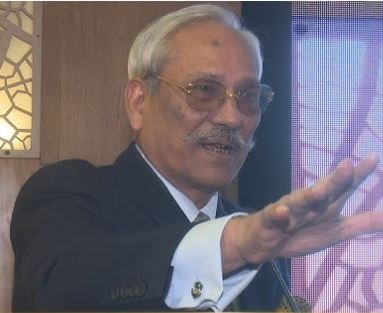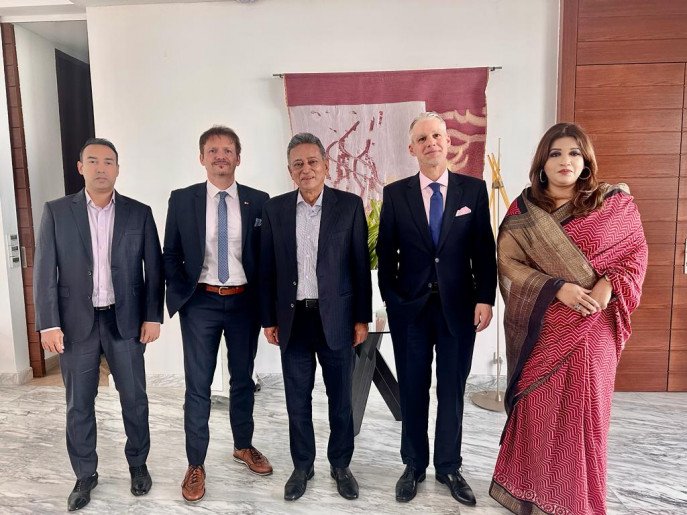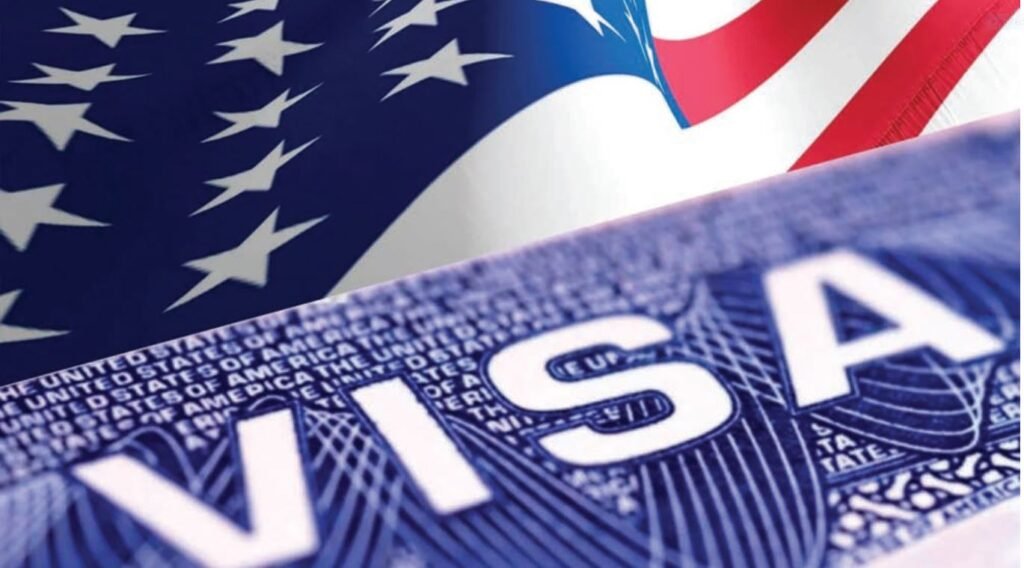“They [BNP] think someone, coming from somewhere else, will put them in power riding a merry-go-round. No one will do that. It will use [them], but won’t give them power,”
– Prime Minister Sheikh Hasina
As BNP’s year-long campaign to oust the elected government with their movement has clearly failed to garner public support, the party now apparently lean on foreign country’s blessing to grab the country’s power through the backdoor.
The USA’s meddling in Bangladesh politics has apparently cheered Bangladesh Nationalist Party (BNP) as many of the party’s leaders praise US move to introduce visa ban and other proactive statements. BNP vice-chairman and former lawmaker Shahjahan Omar recently termed US Ambassador Peter D. Haas as the ‘God’, urging the ambassador to save the party.
“Mr Peter D. Haas may be come (to us) as a god. O father, save us. We are with you.”
-Shahjahan Omar said at an event recently

Bangladesh Nationalist Party politician and a former state minister for law
Though ruling Awami League policymakers said foreign power can’t determine politics in Bangladesh, leaders of BNP is daydreaming of grabbing power riding a merry-go-round.
The United States’ involvement in Bangladesh’s political matters has recently attracted attention. While Bangladesh and the USA maintain broad bilateral relations, the US, along with some Western governments, has been exerting pressure by implementing visa restrictions and emphasizing human rights concerns.
However, this pressure has primarily elicited a defiant response from the Bangladeshi leadership. They remain steadfast in their commitment to conducting a free and fair election in accordance with the constitution, negating the need for a caretaker regime.
As of now, the US has not aligned itself with any specific political party in Bangladesh. Instead, it seeks to influence the Awami League government to ensure a “free and fair” election.
BNP’s Hopes for Foreign Pressure on the Government
The government remains busy with its development projects and preparing for the election campaign. This month, a number of megaprojects are being inaugurated by Prime Minister Sheikh Hasina. Politically, the Awami League prepares for the election, while the BNP holds on to the hope that foreign pressure will persuade the government to hand over power to an interim administration, which will preside over the election in January next year.
Prime Minister Sheikh Hasina recently said no external force will put BNP in power on a merry-go-round, but they would rather use the party against her government.
“They [BNP] think someone, coming from somewhere else, will put them in power riding a merry-go-round. No one will do that. It will use [them], but won’t give them power,” she said in an oblique reference to BNP’s excitement following the announcement of the new US visa policy for Bangladesh.
The USA and western countries also did not yet support BNP’s key demand to restore a poll-time neutral government and said this was the matter of Bangladesh’s political parties. US State Department spokesperson Matthew Miller recently said that Washington does not support any particular political party in Bangladesh and does not wish to influence the outcome of the forthcoming election in Dhaka. But US Ambassador Peter Haas appears to have outdone previous US ambassadors through his rather aggressive position on the election scenario and wading into Bangladesh’s internal politics in recent months.
In April, Bangladesh Prime Minister Sheikh Hasina accused the United States of pursuing a regime change in Bangladesh. “They are trying to eliminate democracy and introduce a government that will not have a democratic existence,” she said.
BNP, without any hesitation, said that the US recent stance on Bangladesh election boost their morale and movement. BNP’s Secretary General Mirza Fakhrul Islam Alamgir said, “The commitment of the Western countries towards democracy in the country has encouraged the party’s activists to carry out the ongoing one-point movement.”

“We are not alone. It is undeniable that the Western countries’ commitment to democracy encouraged our party’s rank and file to carry out the ongoing movement for holding a credible election under a neutral government,” Fakhrul said.
Government confident on fair election, not worried about sanctions
In preparation for the upcoming national elections, the Government, led by Prime Minister Sheikh Hasina, has reaffirmed its commitment to ensuring free and fair elections while resolving concerns regarding external interference. Prime Minister Sheikh Hasina recently said that it is currently impossible for anyone to unlawfully seize power in Bangladesh. She said that if anyone other than only elected representatives want to come to power through an alternative way, they will have to face punishment.
“If anyone comes to power, creating trouble and violating the constitution, then s/he will face punishment. It should not be forgotten,” the premier said.
Hasina highlighted the government’s history of conducting spontaneous, free, and transparent elections in response to questions about the recent US visa policy intended at preventing election interference. She emphasized that the government is committed to conducting elections in accordance with international norms and welcomes inquiries to ensure impartiality.
Establishing a transparent electoral process is one of the main pillars of the government’s strategy. Prime Minister Hasina has repeatedly emphasized the implementation of essential reforms, such as the use of transparent ballot boxes and the inclusion of photographs on voter registration registers. These reforms seek to strengthen the legitimacy of the electoral process and preserve democratic values.

Numerous countries around the world, despite lacking democracy, human rights, or fair elections, maintain alliances with the United States. In contrast, why did the United States take such a stringent stance on the issue of free and fair elections in Bangladesh?
Sanctions and Visa Bans in other Countries
The United States frequently employs visa sanctions and other forms of sanctions as part of its foreign policy strategy, impacting various countries, including Bangladesh. However, it’s important to note that these sanctions have not always achieved their intended objectives. Notably, countries like China and North Korea have managed to withstand these sanctions and continue their operations with limited disruption.
The U.S. has imposed sanctions on a total of 16 countries worldwide for a variety of reasons. These measures include changes to visa policies in eight nations and restrictions on individuals and institutions in eight other countries. Visa restrictions are often applied after elections in these countries, including Bangladesh.

Approximately three months before Bangladesh’s national elections, the U.S. imposed a visa ban on the country, raising speculation that the United States is closely monitoring the political developments in Bangladesh. While some experts believe this move signifies increased U.S. scrutiny, U.S. State Department spokesperson Matthew Miller has indicated that visa bans may target those who undermine the democratic process in Bangladesh.
Prime Minister Sheikh Hasina expressed readiness for more sanctions in a recent interview, acknowledging that U.S. sanctions, ostensibly aimed at promoting democracy, human rights, and freedom of expression, often serve U.S. strategic interests. As the Awami League supports fair elections, they appear unperturbed by the visa ban, seeking to understand the United States’ underlying objectives and messages.
In conclusion, the U.S. visa ban and sanctions, driven by strategic interests, highlight the complex challenges Bangladesh faces. The country’s pragmatic approach, led by Prime Minister Sheikh Hasina and the Awami League’s commitment to fair elections, will guide Bangladesh in navigating this geopolitical landscape while upholding democratic principles and interests as elections approach.


